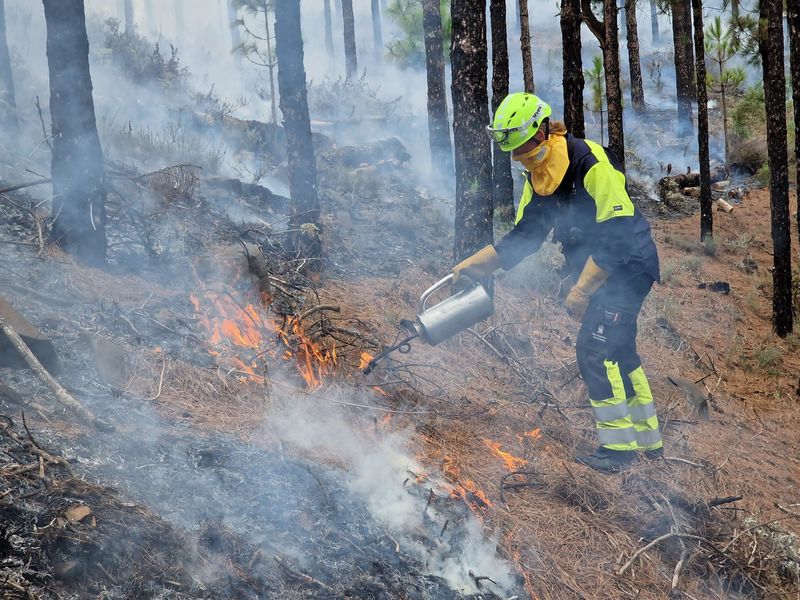Funded by the European Union, the CARMINE project is accelerating efforts to strengthen climate resilience in metropolitan communities across Europe. By providing tools, strategies and plans, the project aims to enhance adaptation and mitigation in line with EU climate policies. To this end, CARMINE has selected eight study areas across various countries, each representing diverse socio-economic profiles, community types, vulnerabilities, and climate impact drivers.
“Barcelona is one of eight study areas in Europe chosen for the project. The focus here is on mitigating the risks of large-scale wildfires, a pressing issue exacerbated by climate change. It’s important to evaluate wildfire risks at an urban scale under various climate and management scenarios and thus, design adaptation and mitigation strategies to tackle wildfire risks, with future projections extending to 2030 and 2050,” says Guillem Canaleta, a project manager at the Pau Costa Foundation.
To start working on Barcelona’s study case, the Pau Costa Foundation together with Mitiga Solutions, a climate tech startup, held a meeting on December 3rd, in the city, to establish a Living Lab, that is, a multisectoral working group composed of representatives from diverse public and private sectors such as conservation, agroforestry, civil protection, and science. The Living Lab promotes co-creation processes and oversees the development of new strategies for wildfire risk management in the context of climate change.


In this first meeting, the Barcelona Living Lab developed a comprehensive map of climate change challenges, and identified key risks, drivers, and potential adaptation and mitigation solutions (including Nature Based Solutions) while addressing implementation barriers. An engaging discussion in a dynamic atmosphere enabled the stakeholders to actively contribute their insights and expertise.
“Wildfires are deeply tied to our changing climate, and looking at them through that lens is critical to empowering organizations to act on uncertainty and build more resilience,” explained Dr. Eleftheria Exarchou, Sr. Climate Scientist at Mitiga.
The Living Lab will guide the development of a Digital Twin framework for the Barcelona Metropolitan Area, which will be designed to assess the risk of extreme wildfires under different future climate scenarios. Co-developing a climate adaptation and resilience framework with the local communities will help authorities and society to design participatory risk reduction measures, including nature-based solutions, according to the different climate scenarios.

Two additional meetings are planned over the next year to define sector-specific climate change objectives tailored to the region’s priorities and needs. These meetings will focus on formulating strategic pathways for adaptation and mitigation, driving resilience and sustainability in the Barcelona metropolitan area.






